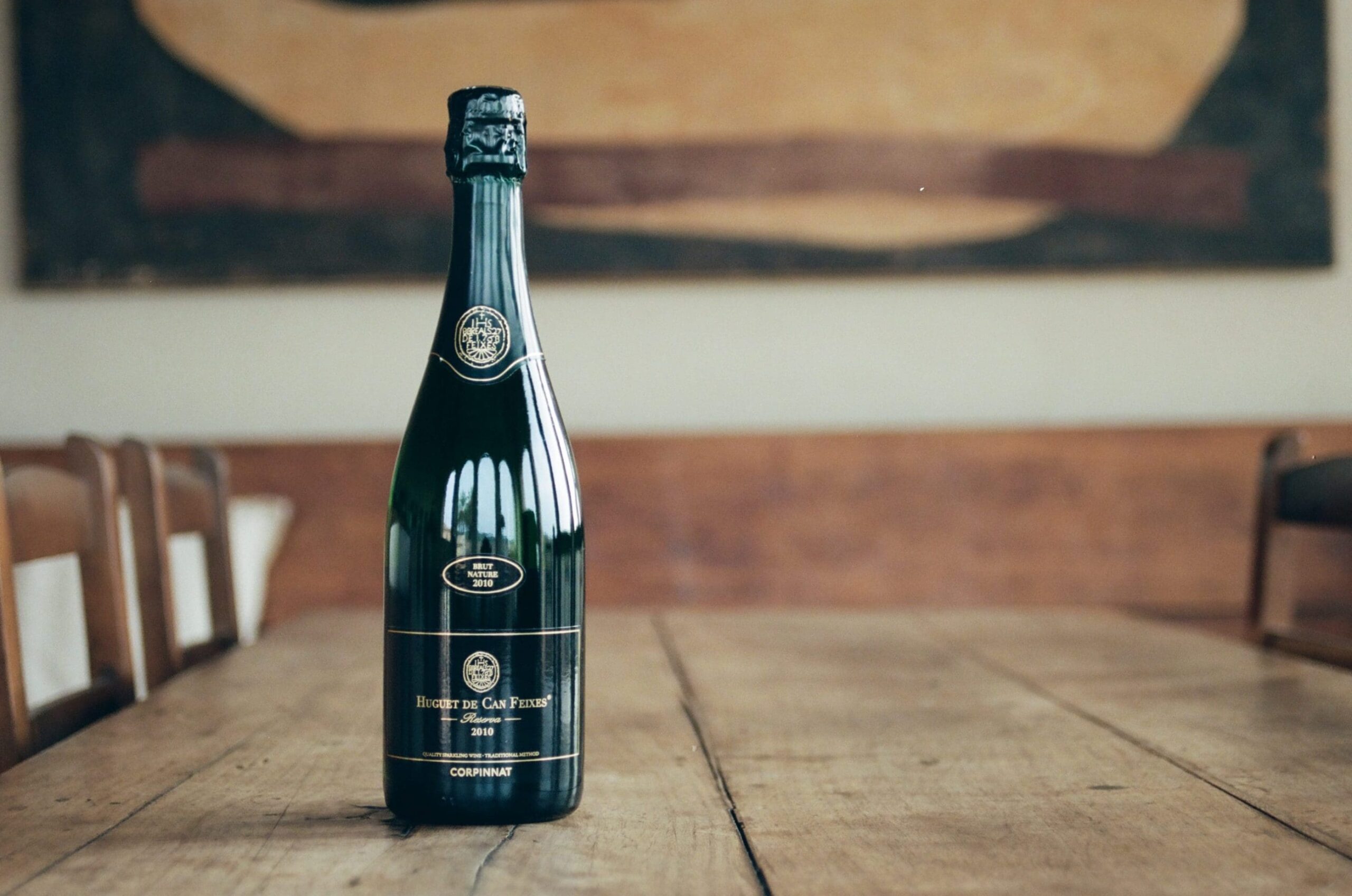Have you noticed how Cava – Spanish sparkling wine – has been driven off most restaurant menus in recent years?
The success of Prosecco, the popular Italian sparkling wine, has been impressive, as it has brought a light, refreshing drink to everyday consumption, both at home and out, ideal for everybody, but especially popular with younger, females. Cheaper than Champagne, Prosecco is well priced, making it accessible, easy drinking. Good Italian marketing plus government promotional support are factors that have helped push Cava out.
Corpinnat – a new quality marque
Out of 200-plus producers in Spain’s DO Cava region, just 11 premium wineries have created a new EU marque – Corpinnat – as an emblem of premium Spanish sparkling wine. Corpinnat was established to distinguish the best Catalan sparkling wines, made from 100% organic grapes, harvested by hand and entirely grown and vinified at the winery.
Corpinnat derives from ‘Cor Pinnat’, or ‘Heart of the Penedès’. The Penedès is a wine region with its own Denomination of Origen (DO) status, located 45 minutes south-west of Barcelona, centred on Vilafranca del Penedès.
The region includes the DO Cava, which has its heart in the nearby town of Sant Sadurni d’Anoia, where the two big giants of Spanish Cava, Codorniu and Freixenet, are based. The two dominate Cava production, between them producing over 100m bottles per year.
With a wide range of Cavas, from entry level that retail at £7 to £9 per bottle to high-end products that hold their own against Champagnes, these two companies have been locked in a fierce price war, driving down the price, positioning and possibly the reputation of Cava in key markets such as the UK.
Methode champenois and sustainability
Unlike Prosecco, Cava is made by the methode champenois, the Champagne method, with the second fermentation, which creates the bubbles, taking place in the bottle. This is not the case with Prosecco, for which the second fermentation takes place in large vats. Methode champenois leads to a more refined drink with deeper flavours and smaller, gentler bubbles for a softer sensation in the mouth.
The ageing length and process adds to the quality. Storage of the bottles in underground bodegas will see wines of greater complexity and finesse develop over time. It is quality factors such as these that the Corpinnat marque highlights, under what are considered to be some of the most stringent quality controls of any DO in the world.
Exported to over 50 countries, but with production only in the hundreds of thousands of bottles, Corpinnat wines are made from hand-picked certified organic Penedès grape varieties, with great respect for territorial and landscape sustainability. Vinifying at the winery guarantees the style and quality of the wines.
Climate, soil and traditional grape varieties confer upon these sparkling wines a distinctive aroma, taste and sensation, enhanced by an ageing in the cellar which will always be longer than 18 months, often aged for more than 30 and up to 60 months.
Available locally – the fightback begins!
One of the 11 premium wineries that formed Corpinnat is Huguet de Can Feixes. They make a range of eight quality wines including two Corpinnat wines that proudly carry the family name, Huguet. Here I must declare an interest, in that my wife, Margarita Huguet, and our family now actively promote and distribute the wines in the UK.
Can Feixes wines have received many accolades over the years, including 130 national and international awards alongside high-ranking Parker scores, with several listed at El Bulli, recognised before it closed as the world’s best restaurant. The family are considered to be one of the region’s most notable and ambitious producers by the FT’s wine expert Jancis Robinson who, at a blind tasting, placed Huguet in her top four of over 200 Spanish sparkling wines.
Corpinnat – look out for it, and taste the difference!

For more information visit www.canfeixes.com and contact Adrian on 07720 297402 or via adrian@adrianhpryce.com













